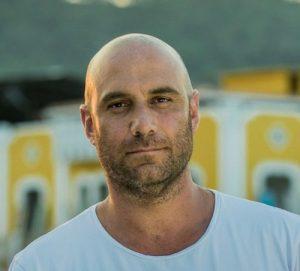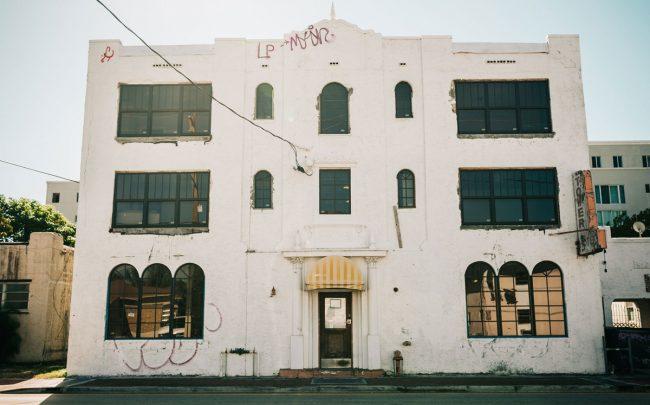It’s a millennial’s dream: traveling the world while working, drinking, exploring and meeting like-minded nomads in chic hotels.
That’s what Selina is selling. Backed by high-profile investors including WeWork co-founder Adam Neumann, the London-based startup operates dozens of hostels with co-working space in vacation spots across the globe.
But after a bungled launch in the United States, Selina’s millennial fantasy is colliding with financial reality.
For months its executives have been unable to persuade investors to commit to a $500 million real estate investment fund to buy U.S. properties. It hasn’t helped that it has opened only two of more than a dozen Selina-branded locations slated to launch here last year. And now the coronavirus pandemic has crippled the hospitality industry.
Some have chosen to invest and some have not. But we consistently receive positive feedback
At the same time, the executives have been trying to secure a $75 million convertible loan to cover operational costs until next year, according to internal documents obtained by The Real Deal.
Some would-be investors have balked at Selina’s pitch, which forecasts that revenue will explode from $70 million in 2019 to more than $2 billion in 2024. The documents also anticipate the number of beds growing nine-fold over that time to 130,000 — which would make it one of the 10 largest hotel operators in the world.
Alongside these lofty goals, Selina says it will be profitable by 2022 and plans to raise more equity next year at a valuation as high as $2 billion, according to the documents.
But the projections are largely contingent on the company succeeding in the U.S., where it has fallen well short of its goals.

Yoav Gery, president of Selina
Yoav Gery, Selina’s president, said its message has been well received.
“We’ve met, and continue to meet with, many potential investors around the world,” he said. “Some have chosen to invest and some have not. But we consistently receive positive feedback about our brand, our model and our team.”
Gery said the company is in talks with a lender to fund operational costs and expects to close on that convertible loan before the end of the month. The company is also in the process of securing a $60 million loan from the Inter-American Development Bank to fund growth projects in South America, he said.
The president said Selina is talking to “multiple” potential partners for its $500 million U.S. real estate investment fund, but there is no timeline on when it will close.
Rough environment
Selina’s fundraising efforts began prior to the coronavirus outbreak, and Gery said the company will likely shift its financial goals in light of the economic disruption. Hotels have been hit especially hard as travel has been drastically reduced.
The No. 1 need of this generation is to socialize
But even before the pandemic, raising money for growth-focused startups had become difficult. Since the implosion of WeWork last fall, investors, bankers and even consumers have become wary of engaging with firms perceived to be like it.
These headwinds are particularly true of hospitality startups. This month, Lyric, an Airbnb-backed firm that offers apartments to business travelers, said it would close a third of its 600 units and cut staff. Oyo, an online hotel listings platform that has raised $3 billion, mostly from SoftBank Group, has let 5,000 employees go and pulled out of multiple cities.
Even Airbnb, the darling of hospitality startups with a $31 billion valuation, is facing an uncertain future after posting losses ahead of a planned public offering this year.

Rafi Museri, co-founder of Selina (Credit: Skift)
To appeal to investors, Selina has billed itself as the solution for a growing market of what it calls “digital nomads” — workers who, the company hopes, will stay in its picturesque locations year round.
“The No. 1 need of this generation is to socialize,” Rafi Museri, Selina’s co-founder and CEO, said in an interview. “That means the No. 1 goal of this company is to connect people.”
The message has attracted a broad audience, raising $345 million from big-name investors including Tom Barrack’s Colony Latam Partners, billionaire Len Blavatnik’s Access Industries and Peruvian conglomerate Grupo Wiese. (Colony and Access declined to comment, and Grupo Wiese could not be reached.)
We believe it has all the risks of WeWork in there. If vacancy rates go up, the economy takes a downturn, that’s a risk level I don’t want
“There’s a lot of smart investors who are investing with these guys, and that instills confidence in people like myself,” said Avra Jain, a Miami-based hotel owner who expects to open two Selina-occupied properties next month.
The image that Selina cultivates recalls that of WeWork under the controversial Neumann, who touted the idea that it was more a state of being than an office-space company. The parallels may explain why Neumann, who was ousted from WeWork last summer, personally invested millions of dollars in Selina. He did not respond to requests for comment.
Museri dismissed the similarities as a “coincidence” and noted that Selina is a hospitality company that invests in distressed assets, while WeWork leases premium office space.
“I see zero synergy,” Museri said of the two companies. “It’s so different.”
Some investors in the hospitality sector, however, see red flags. Santosh Rao, the head of research at Manhattan Venture Partners, an Airbnb investor, characterized Selina’s business as a mix of Airbnb and WeWork, “but we believe it has all the risks of WeWork in there.”
“It’s essentially the same model: take the space and rent it out for living,” Rao said. “In the event that vacancy rates go up, the economy takes a downturn, that’s a risk level I don’t want to be exposed [to].”
A backpacking brainstorm
The idea of Selina, Museri told Forbes two years ago, is embodied by a fictional 29-year-old woman from Latin America who travels the world and is “honest, humble, beautiful. She hosts you, she hugs you. You want to be with her.”
Museri came up with the idea several years after he and his friend Daniel Rudasevski backpacked across Central and South America and launched a real estate firm, Dekel Holdings, to buy and redevelop properties in distressed neighborhoods in Panama.
The two Israelis figured they could do the same thing with distressed hotels by turning them into stylish hostels where people could rent desks — a working environment for thousands of travelers who pass through the region. The first Selina was launched in Venao, a surf town on Panama’s Pacific coast, in 2014.
After opening a third location, the two men were introduced to Gery, who previously held executive roles at Marriott International and Morgans Hotel Group. Gery set about fundraising, and secured early investors, including Adam Neumann, who was building his own real estate leasing empire at WeWork. (Gery said he and Neumann met through “a friend of a friend.”)
Behind the idyllic hostels — now in more than 70 locations — is a novel business arrangement. Selina identifies distressed properties, then finds a regional partner to buy them and shoulder redevelopment costs. In return Selina commits to leases of 20 to 40 years. With some landlords it agrees to profit-sharing.
The model is being replicated in other countries with 10 partners who have committed more than $450 million to buying and redeveloping property, according to the firm’s internal documents. In Mexico, for example, DD3 Capital Partners has committed to providing over $150 million. With these commitments, Selina has said it can open another 77,000 beds.
Men of many hats
Through a holding company called Kibbutz, Museri and Rudasevski hold a 29 percent stake in Selina and an 84 percent stake in Dekel, according to people familiar with the business. In three properties leased by Selina — in Colombian cities Medellin and Cartagena, and in Panama City, Panama — Dekel is an investor, attaching the co-founders to both landlord and tenant entities.
Such arrangements have raised eyebrows at other firms, including WeWork, which used its real estate investment fund, ARK, to buy properties that would be leased to WeWork. The issue troubled stakeholders at properties such as the Lord & Taylor building in Manhattan as the company prepared to go public because executives holding roles in both buyer and tenant entities stood to benefit.
Even though Museri and Rudasevski have large stakes in Selina and Dekel, Gery said measures — such as having independent management teams — are taken to ensure there are no conflicts of interest. (The two co-founders left their executive roles at Dekel when Selina was founded.) Gery also noted that Dekel’s real estate investments are dwarfed by those of WeWork, which paid, for example, $850 million for the Lord & Taylor building.
“We wanted to make sure they’re completely separated in terms of conflict rules,” Gery said. “Yes, the two individuals are involved in both. But legally, contractually, functionally, operationally, [Dekel and Selina] are two separate entities.”
One person familiar with Selina’s business told TRD this was a red flag. So was the firm’s valuation of $1.8 billion, by one internal estimate, on forecasted $200 million revenue this year. And with coronavirus running amok, the firm’s reliance on an ability to keep expanding and raising more capital poses yet another hurdle.
“Whenever someone tries to grow, grow, grow and then they have to raise money for operations — how can you sustain growth without capital?” said one person familiar with Selina’s business.
Headaches stateside
A major pillar of Selina’s growth strategy has been opening hotels in the United States. In March 2019 it announced a plan to open 15 by the end of the year.
But after delays, lawsuits and permit issues, only two are operating here under the Selina flag.
“Definitely the strategy of the U.S. … took me longer to understand,” Museri said. “Now, we’re sitting on a very good strategy.” He said Selina has 12 properties “signed, opened or under development” in the country.

The former Tower Hotel in Miami’s Little Havana (Credit: Barlington Group)
Some headaches remain. Selina is suing the former owner of a Woodstock, N.Y., property over undisclosed permit issues that have prevented its hotel from being completed at the site. A Selina hotel in Miami’s Little Havana was supposed to open in September 2018 but still hasn’t.
The landlord of its flagship location at the Hotel Americano in Chelsea is facing a foreclosure action by a lender after defaulting on loan payments. Selina holds a management agreement with Mexican hotel magnate Moises Micha that is contingent on the landlord maintaining ownership of the building.
“The underlying issues have nothing to do with Selina or its operation of the property,” said Gery, the president.
Bill Fuller, whose firm Barlington Group owns the Little Havana property, the former Tower Hotel, blamed the delay on a regulatory dispute, not Selina. He said the hotel is slated to open in July.
The company recently opened a location in New Orleans and expects to open two others next month in Miami, owned by Jain’s Vagabond Group. Selina Miami River and Selina Miami Gold Dust will feature yoga rooms, a cinema and a library.
“They do this innovative hospitality approach,” Jain said. “I think they are doing it better than anybody.” She boiled down the company’s U.S. issues to the nuances of regulation and red tape.
She expressed confidence in her arrangement with Selina because she has a profit-sharing arrangement. “We are sort of betting on their success,” she said.
Correction, March 23, 2020: An earlier version of this story misstated the firm of Santosh Rao. He is head of research at Manhattan Venture Partners.
